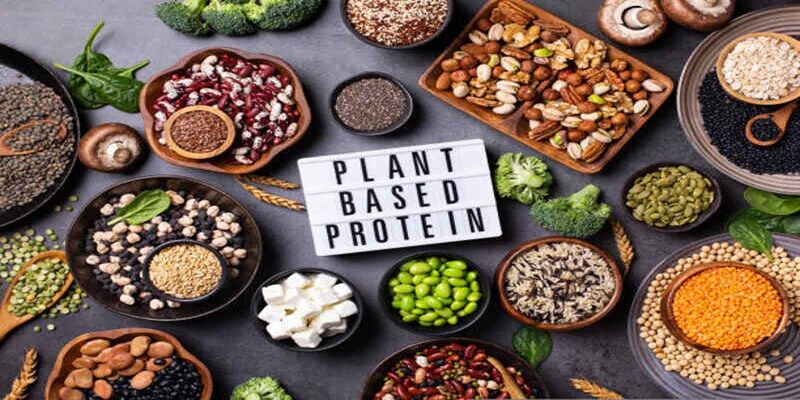Fueling the Fire: 10 Foods That Can Cause Inflammation in Your Body
Nov 07, 2023 By Nancy Miller
Do you ever feel anxious, sluggish and swollen without knowing why? If so, it's possible that inflammation is causing your discomfort. Inflammation can take shape in the form of joint pain, an upset stomach and even depression. While this may sound daunting, there are plentiful ways to manage inflammation naturally with a balanced diet! In this blog post, we will look at 10 different foods that can cause inflammation in your body if consumed too often or not managed correctly. By avoiding these inflammatory triggers you’ll be able to better sustain energy levels throughout the day and long term health benefits that come from reducing scar tissue build-up within the organs and blood vessels.
What is Inflammation?
Inflammation is a natural response from our body's immune system to protect against harmful pathogens and heal damaged tissues. It can be acute, such as when you get a cut or scrape, or chronic, where it persists for long periods of time.
How diet can influence inflammation?
Diet plays a crucial role in managing inflammation as it provides the necessary nutrients for our body to function properly. Certain foods can trigger an inflammatory response in the body, causing discomfort and health issues if consumed too often. By being mindful of what we eat, we can reduce chronic inflammation and its adverse effects on our overall health.
Inflammation impact on health
Chronic inflammation can lead to serious health issues such as heart disease, cancer, and diabetes. It can also worsen existing conditions like arthritis and asthma. By managing our diet and reducing inflammatory triggers, we can prevent these long-term health consequences.
10 Foods That Can Cause Inflammation
1.Sugar and High-Fructose Corn Syrup
Consuming high amounts of sugar and high-fructose corn syrup can cause a spike in blood sugar levels, leading to insulin resistance and chronic inflammation. These ingredients are commonly found in processed foods, soft drinks, and desserts.
2. Trans Fats

Trans fats are a type of unsaturated fat that has been chemically modified to increase shelf life. They can be found in fried and processed foods like potato chips and cookies. Consuming trans fats can lead to increased inflammation in the body.
3. Processed Meats
Processed meats like bacon, sausage, and deli meats contain high levels of sodium and preservatives that can trigger an inflammatory response in the body. They are also often high in saturated fats, which have been linked to increased inflammation.
4. Refined Carbohydrates
Refined carbohydrates, such as white bread, pasta, and rice, have a high glycemic index, which can cause a spike in blood sugar levels. This can lead to insulin resistance and inflammation.
5. Alcohol
Excessive alcohol consumption can damage the lining of the stomach and intestines, leading to increased inflammation. It also disrupts the immune system's ability to fight off infection, making it more susceptible to inflammation-related diseases.
6. Vegetable Oils
Vegetable oils like soybean, corn, and sunflower oil contain high levels of omega-6 fatty acids, which can promote inflammation in the body when consumed in excess.
7. Artificial Sweeteners
Artificial sweeteners like aspartame and sucralose are often found in diet sodas and low-calorie snacks. Consuming these sweeteners has been linked to increased inflammation and other health issues.
8. Dairy Products
Dairy products, particularly those from cows, contain a protein called casein that can trigger an inflammatory response in some people. Additionally, dairy products are often high in saturated fats which can also contribute to inflammation.
9. Gluten

Gluten, a protein found in wheat, barley, and rye, has been linked to inflammation in people with celiac disease or gluten sensitivity. Avoiding gluten-containing foods can help reduce inflammation for those who are sensitive to it.
10. Nightshade Vegetables
Nightshade vegetables like tomatoes, potatoes, and eggplant contain a compound called solanine that has been linked to inflammation in some individuals. While not everyone is sensitive to nightshades, it may be worth limiting their consumption if you experience chronic inflammation.
Alternatives to Inflammatory Foods
Now that you know which foods to avoid, here are some anti-inflammatory alternatives that can help reduce chronic inflammation in your body.
- Fruits and vegetables: Loaded with antioxidants and other essential nutrients, fruits and vegetables should be a staple in any diet aiming for reduced inflammation.
- Healthy fats: Instead of vegetable oils, opt for healthy fats like avocado, olive oil, and nuts, which contain anti-inflammatory properties.
- Whole grains: Instead of refined carbohydrates, choose whole grains like quinoa, oats, and brown rice which have a lower glycemic index and can help regulate blood sugar levels.
- Lean protein sources: Choose lean proteins like fish, chicken, and legumes instead of processed meats to reduce inflammation in the body.
- Herbs and spices: Incorporating anti-inflammatory herbs and spices like turmeric, ginger, and garlic into your meals can also help reduce inflammation.
By making small changes to your diet and avoiding inflammatory foods, you can better manage chronic inflammation and improve your overall health. Remember to always consult with a healthcare professional before making drastic changes to your diet.
Conclusion
Inflammation is a necessary response for our body to heal and protect itself, but chronic inflammation can lead to serious health consequences. By being mindful of our diet, we can reduce the triggers that cause inflammation in our bodies and improve our overall health and well-being. Choose whole, unprocessed foods and incorporate anti-inflammatory alternatives to keep your body healthy and balanced. So, it is important to pay attention to what we eat and make informed decisions about our diet to manage inflammation and maintain good health. Hence, a balanced and healthy diet is key in reducing chronic inflammation and promoting overall well-being.
-
 Nov 09, 2023
Nov 09, 2023Essential Guide to Resuming Exercise Postpartum with Assurance and Vigor
Navigate the journey back to fitness after childbirth with our guided approach.
-
 Nov 07, 2023
Nov 07, 2023Navigating the World of Plant-Based Protein: A Comprehensive Guide
Explore the health and environmental benefits of incorporating plant-based proteins into your diet, and learn how to start adding these nutrient-rich foods to your meals today!
-
 Nov 02, 2023
Nov 02, 2023Efficacy of a Targeted Diet for Rheumatoid Arthritis and Autoimmune Disorders
Discover the potent effects of a specialized diet for ameliorating symptoms linked to Rheumatoid Arthritis.
-
 Sep 26, 2023
Sep 26, 2023Discovering Natural Ways to Kick the Smoking Habit
This article provides a comprehensive guide on natural and holistic strategies to quit smoking, highlighting the role of mindfulness, planning, and social support.
